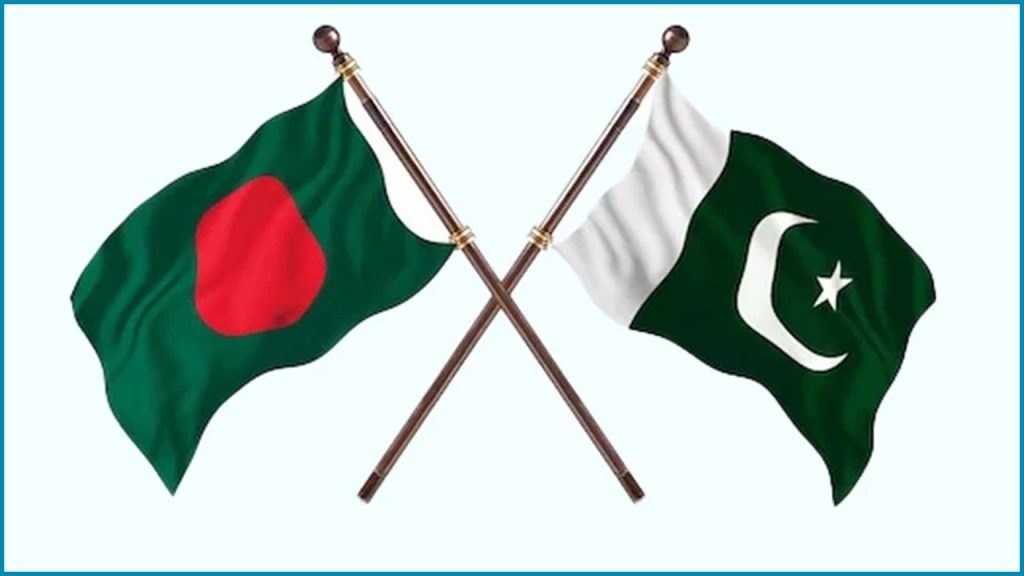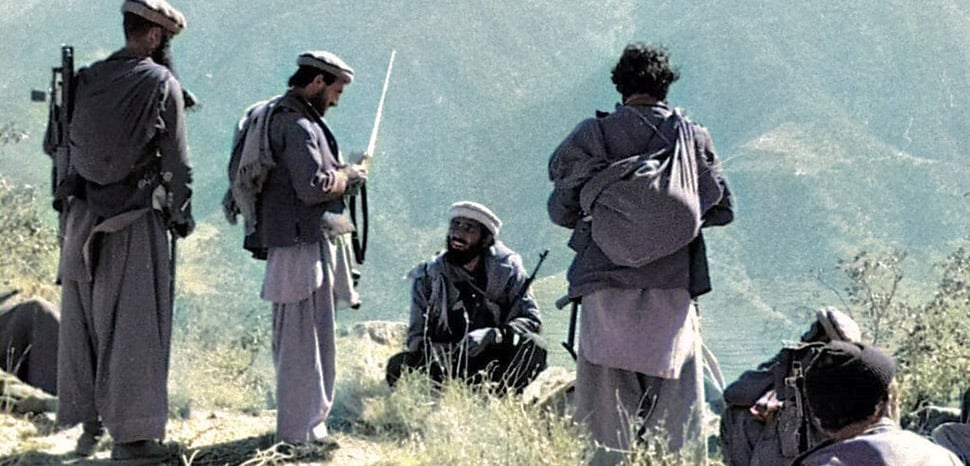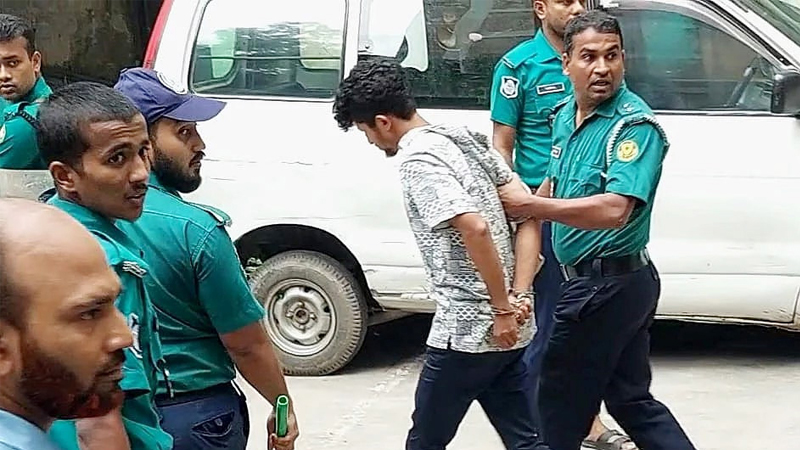Pakistan–Bangladesh Joint Anti-Terror Initiative: Risk or Opportunity?

Bangladesh and Pakistan have recently declared their intention to cooperate in combating militancy. On July 29, 2025, in New York, Bangladesh’s Foreign Affairs Adviser with Pakistan’s Foreign Minister Yusuf Dar. The two sides reached a mutual understanding to collaborate across a range of areas, prominently including counterterrorism.
This high-level pledge of anti-terror cooperation came less than two weeks after the U.S. Department of State officially designated The Resistance Front (TRF) — a rebranded operational front of Pakistan-based Lashkar-e-Taiba — as a Foreign Terrorist Organization on July 18, 2025.
On July 30, just a day after the Bangladesh–Pakistan meeting, the UN Security Council’s monitoring team named TRF for the first time in an official report, directly linking it to the deadly Pahalgam attack of April 22 that killed 26 soldiers.
Many perceive the Trump administration as especially sensitive when it comes to terrorism. Yet the 2023 U.S. State Department report—which is publicly known—stated that Pakistan harbors a staggering 87 terrorist organizations. Of these, 41 are fully operational and capable of launching deadly attacks. The report also noted that many madrassas in Pakistan are explicitly engaged in imparting training geared toward armed militant attacks.

A State That Accepts Its “Militant Reality”
During India’s recent Operation Sindoor in Pakistan, Pakistani Foreign Minister Mr. Dar stated in a television interview that Pakistan has long been forced to accept the “militant reality.” The fact that Pakistan has indeed internalized this reality was also evident during the Obama administration in the U.S.
When American forces carried out the operation to kill Osama bin Laden, it was executed in Abbottabad, deep inside Pakistani territory—without informing Pakistan in advance.
Later, U.S. newspapers and numerous counterterrorism journals defended the decision, asserting that the mission would have failed had the Pakistani military or government been informed. Bin Laden would either have been relocated or assisted in escaping to another location.
The truth of those analyses finds further support in the account of a terrorist captured after an attack in Sweden. He admitted that their training came not only from terrorist organizations but also directly from the Pakistani military. A similar claim appears in a book about the training of Uyghur militants from China.
According to that account, a group of young Uyghur men was dropped off in a remote area of Pakistan from a private vehicle. Their physiques and facial expressions bore the marks of long-term training. These men were on their way back to Xinjiang—and members of the Pakistani military were ensuring their safe passage.
A similar scene unfolded during and after the Pahalgam attack in India. When India launched a surgical strike on Lashkar-e-Taiba’s headquarters in Pakistan, the Pakistani military was seen guarding the compound before and after the strike. The same Lashkar-e-Taiba’s operational wing, TRF, was recently designated by the U.S. as an international terrorist organization.

Bangladesh’s Foreign Policy Idealism vs. Strategic Caution
Bangladesh’s foreign policy stance is famously framed as “friendship with all, malice toward none.” While that may sound utopian, the principle of maintaining good relations with everyone, including Pakistan, is understandable.
However, it is crucial to evaluate which areas of cooperation are genuinely beneficial for Bangladesh—and to what extent they are beneficial.
Once Bangladesh embarks on joint anti-terror operations with Pakistan, it will necessarily have to engage with Pakistan’s military and civilian intelligence agencies. A significant portion of both is known to be entangled with domestic terrorist networks.
Those familiar with Pakistan know that it is a country of many “states within a state”—numerous power centers, some of which operate independently and even disregard the civilian government. These entities also control vast financial resources.
According to the U.S. State Department, the primary sources of funding for these terror organizations are undisclosed donations and extortion.
President George W. Bush once said, “Money is the blood of terrorism.” In practice, anyone who has studied terrorism even slightly knows this: terrorism relies less on ideology (since no immoral ideology sustains itself long-term) and more on financing.
Pakistan’s so-called undisclosed donations are in fact both domestic and foreign terrorist funding. The State Department also names extortion as another key funding source.
Timing, Political Landscape, and Ideological Contradictions
At a time when Bangladesh is witnessing a clear rise of right-wing and fundamentalist forces, the government has chosen to initiate counterterrorism collaboration with a country like Pakistan.
The head of the current interim government has declared that it came to power through a “meticulously designed people’s uprising.”
That may be true—but had it been a genuine popular uprising, would the movement’s young leaders have become so disconnected from the people so quickly?
Within a year, not only from across the country but even among central youth leaders, voices have emerged acknowledging that they were mistaken. They had initially believed the movement to be something progressive.
Bangladesh’s most senior intellectual, Badruddin Umar—once a fierce critic of the previous regime—has recently said that the 2024 movement marked the beginning of a right-wing rise.
On the other hand, BNP (Bangladesh Nationalist Party) Secretary General Mirza Fakhrul Islam Alamgir has publicly expressed concern about this shift to the right in the post-regime-change landscape.

The Rise of a Wealthy, Right-Wing Class
The young men who rose to power through the recent political transition in Bangladesh mostly came from extremely impoverished families—none were from the middle class. Yet those who are now part of political parties or hold positions of power are showing signs of sudden, disproportionate wealth.
At the same time, multiple media reports suggest their party cadres are involved in large-scale extortion. Even the police have arrested several individuals from their ranks on extortion charges.
This combination of mysterious financial sources and widespread extortion closely mirrors the financial behavior of Pakistani militant groups, as described in the U.S. State Department’s reports.
A Weak Government Within the Government?
During such a right-wing surge, even the intellectuals who align ideologically with the current government have stated publicly in the media that there are “many governments within the government.”
When such statements surface—indicating fragmented governance—it is generally understood that the state is not strong or stable, but rather deeply fragile.
A government’s ability to suppress opposition doesn’t automatically prove its strength. And given that this government came to power following the collapse of the previous one, they ought to have learned an essential lesson: the power to suppress opposition is not the same as the power to govern or to endure.
So, is it appropriate for a government in this fragile condition to now collaborate on counterterrorism with a country where militants have infiltrated nearly every institution? Shouldn’t the potential backlash be carefully evaluated before celebrating any perceived “positives”?

Who Are We Welcoming?
Because if such cooperation begins, those arriving from Pakistan will undoubtedly be able to move freely within Bangladesh. But how will it be determined which of them are militants and which are not?
What guarantee do we have that militant elements among them will not further strengthen their networks within Bangladesh?
And now that the rise of the right is already a reality here, the groundwork for such ideological infiltration is already fertile.
When such a breeding ground exists, the priority should be to prevent further fertilization—not to encourage it. That’s the real essence of counterterrorism: identifying and working with nations that are genuinely committed to uprooting terrorism, rather than partnering with those who are internationally recognized for exporting it.
What’s at Stake: Reputation, Youth, and Security
If, in contrast, Bangladesh aligns with a country globally known for terrorism, at a time when right-wing and extremist forces are already gaining ground at home, likely, Bangladesh’s international image will further deteriorate.
And that’s not all—such a move could end up emboldening and expanding the influence, morale, and networks of our homegrown right-wing extremists.
Already, young Bangladeshi citizens—particularly students—are facing declining opportunities to secure visas or enroll in educational programs in countries known for their zero-tolerance stance on terrorism.
If Bangladesh increases its interactions with Pakistan, even travel to that country by these young people might become a future liability. Many nations could consider such travel grounds for suspicion, making visas or higher education in advanced, terror-free countries more difficult to obtain.
Friendship, Yes—But Not Without Boundaries
So even if our foreign policy motto remains “friendship with all,” we must determine how far to go with a country like Pakistan—one infested with terrorism—and at what point to draw the line.
If we fail to do so, aren’t we simply pushing the nation toward a different kind of cliff?
Author:
Recipient of Bangladesh’s highest state journalism award. Editor, Sarakhon and The Present World.












